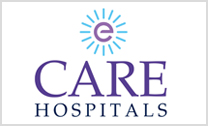Ophthalmologist Consultation
Symptoms: Hyphema glaucoma, dry eye syndrome, lacrima gland tumour, cataracts, injuries and trauma.
In a hurry? Request callback.

Symptoms: Hyphema glaucoma, dry eye syndrome, lacrima gland tumour, cataracts, injuries and trauma.
In a hurry? Request callback.










The intricate world of vision and eye health requires specialized expertise to ensure optimal care. An ophthalmologist is a medical professional dedicated to diagnosing, treating, and managing a wide range of eye conditions and diseases. This comprehensive guide aims to shed light on the role of an ophthalmologist in maintaining your eye health, and it addresses common questions to help you make informed decisions about your vision care.
An ophthalmologist is a medical doctor who specializes in eye care and the visual system. With extensive training in both medicine and surgery, ophthalmologists are equipped to diagnose and treat various eye conditions, ranging from refractive errors like nearsightedness to complex eye diseases like glaucoma and cataracts. They play a pivotal role in safeguarding and optimizing your visual health.


Regular eye exams conducted by an ophthalmologist are essential for maintaining good eye health and detecting any potential issues early. In addition to routine check-ups, you should consider visiting an ophthalmologist if you experience any of the following:
An ophthalmologist is a crucial partner in maintaining your eye health and preserving your vision. With their expertise and specialized training, they offer comprehensive eye care services, from routine check-ups to complex surgeries. By understanding the role of an ophthalmologist and staying proactive about your eye health, you're taking significant steps towards a lifetime of clear and healthy vision.